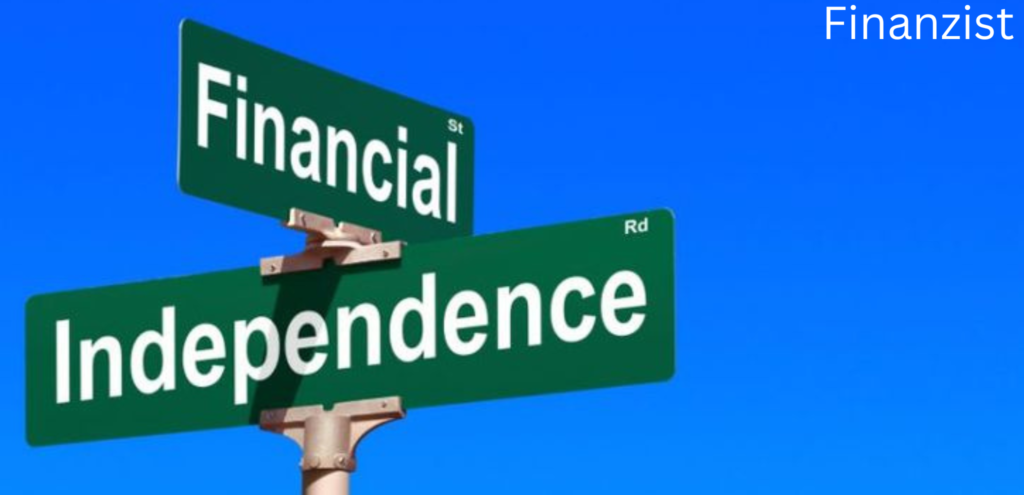In today’s fast-paced world, the dream of financial feels more achievable than ever. Whether you’re aiming to retire early, travel the world, or simply live life on your own terms, understanding financial is the first step towards that dream. In this article, we’ll explore what financial independence truly means, the benefits it offers, and practical steps you can take to achieve it.
What is Financial Independence?
Financial independence means having enough savings, investments, and income to afford the lifestyle you desire without having to work actively for a living. It’s about creating a safety net that allows you to make choices based on your preferences rather than financial obligations. This concept can vary significantly from person to person—some may define it as having a million-dollar nest egg, while others might see it as simply covering their basic expenses.
The Importance of Financial Independence
- Freedom of Choice: With financial independence, you can choose how to spend your time—whether that’s pursuing hobbies, volunteering, or traveling.
- Reduced Stress: Financial worries can be a significant source of anxiety. Achieving financial independence alleviates that burden, allowing for greater mental peace.
- Time Affluence: Time is our most valuable resource. Financial independence provides the ability to spend your time on what truly matters to you, rather than being tethered to a job.
- Legacy Building: Achieving financial often allows you to leave a legacy, whether through charitable giving, supporting family, or investing in future generations.
Steps to Achieve Financial Independence
1. Set Clear Goals
The journey to financial independence starts with setting specific, measurable, achievable, relevant, and time-bound (SMART) goals. Here are some examples:
- Short-term Goal: Save $5,000 in the next year.
- Medium-term Goal: Pay off student loans within five years.
- Long-term Goal: Accumulate $1 million in investments by age 60.
Having clear goals provides direction and motivation.
2. Assess Your Current Financial Situation
Before making changes, take a comprehensive look at your finances. This includes:
- Net Worth: Calculate your assets (savings, investments, property) minus your liabilities (debts, loans).
- Income and Expenses: Track where your money comes from and where it goes. This will help identify areas for improvement.
3. Create a Budget
A budget is an essential tool for managing your finances. It helps you allocate your income toward necessary expenses, savings, and discretionary spending. Consider the following tips:
- 50/30/20 Rule: Allocate 50% of your income to needs, 30% to wants, and 20% to savings and debt repayment.
- Use Budgeting Apps: Tools like Mint, YNAB, or EveryDollar can simplify tracking your finances.
4. Build an Emergency Fund
An emergency fund is crucial for financial stability. Aim to save at least three to six months’ worth of living expenses. This fund acts as a financial buffer, preventing you from going into debt during unforeseen circumstances like job loss or medical emergencies.
5. Pay Off Debt
Debt can be a significant obstacle to achieving financial independence. Prioritize paying off high-interest debts, such as credit cards, as quickly as possible. Here are some strategies:
- Debt Snowball Method: Focus on paying off your smallest debts first for a psychological boost.
- Debt Avalanche Method: Pay off debts with the highest interest rates first to save money on interest in the long run.
6. Increase Your Income
While cutting expenses is important, increasing your income can significantly accelerate your journey to financial independence. Consider these options:
- Side Hustles: Explore freelance work, gig economy jobs, or turning a hobby into a business.
- Invest in Yourself: Consider furthering your education or skills to advance in your career or switch to a more lucrative field.
7. Start Investing Early
Investing is one of the most effective ways to build wealth over time. Here are some key investment strategies:
- Retirement Accounts: Contribute to employer-sponsored 401(k) plans or IRAs to take advantage of tax benefits.
- Stock Market: Invest in stocks, bonds, or ETFs. The earlier you start, the more your money can grow due to compound interest.
- Real Estate: Consider investing in rental properties or real estate investment trusts (REITs) for passive income.
8. Live Below Your Means
To achieve financial independence, it’s essential to adopt a lifestyle that prioritizes saving and investing over unnecessary spending. Here are some tips for living below your means:
- Mindful Spending: Differentiate between needs and wants. Make intentional choices about where to spend your money.
- Downsize: Consider moving to a smaller home or finding a more affordable living situation to reduce expenses.
The Role of Mindset in Financial Independence
Achieving financial independence isn’t just about numbers—it’s also about mindset. Here are some ways to cultivate a positive financial mindset:
1. Embrace a Growth Mindset
Believe that you can improve your financial situation through hard work and learning. This mindset will keep you motivated, even when facing challenges.
2. Surround Yourself with Supportive People
Connect with like-minded individuals who share your goals and values. Join online forums, local meetups, or social media groups focused on financial independence.
3. Celebrate Milestones
Recognize and celebrate your progress, no matter how small. This will keep you motivated and reinforce positive habits.
The Benefits of Financial Independence
1. More Time for Relationships
Financial independence often leads to more time to spend with loved ones, strengthening relationships and enhancing your quality of life.
2. Increased Opportunity for Personal Growth
With financial worries minimized, you can focus on personal development, learning new skills, or exploring creative passions.
3. Philanthropic Opportunities
Achieving financial independence allows you to give back to your community, whether through donations, volunteering, or supporting causes you care about.
Common Misconceptions About Financial Independence
1. It Requires a High Income
While a higher income can accelerate the process, financial independence is achievable on any salary with proper planning and discipline.
2. It’s Only for the Wealthy
Anyone can work towards financial independence, regardless of their current financial status. The key is starting small and staying consistent.
3. You Have to Sacrifice Everything
Achieving financial independence doesn’t mean living a life of deprivation. It’s about finding a balance between enjoying your life today and planning for tomorrow.
Final Thoughts
Achieving financial independence is a journey that requires dedication, planning, and a willingness to adapt. By setting clear goals, assessing your current financial situation, and making informed decisions, you can take control of your financial future. Remember, it’s not just about the money—it’s about creating a life that aligns with your values and aspirations. Start today, and take one step closer to the freedom you desire.


